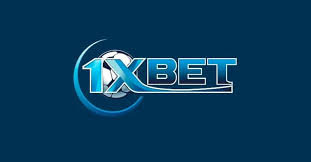1xbet61
Practical esports betting strategies, markets, and responsible play

esports betting plinko singapore
Esports betting has grown from a niche pastime into a sophisticated global market. As competitive gaming matures, so do the betting opportunities around titles like League of Legends, Dota 2, Counter-Strike 2, Valorant, and a growing roster of competitive games. This guide explores how the ecosystem works, the most common bet types and markets, practical strategies for managing risk and bankroll, legal and ethical considerations, and tips to keep your approach disciplined and informed.
Understanding esports markets and odds is the first step. Most sportsbooks offer moneyline bets (picking the winner), handicaps or map spreads, totals (over/under rounds or maps), and futures (tournament winners). Live betting is particularly active in esports because matches have many discrete events—rounds, maps, and in-game objectives—that provide frequent opportunities to place wagers. Odds are usually presented in decimal, fractional or American formats and reflect both implied probability and the house edge. Learning to convert odds into implied probability helps bettors identify value when their assessment of a matchup differs from the market.
Research and preparation are essential. Start by studying recent form, head-to-head records, map pools or character meta, roster changes, coaching and organizational stability. For team-based titles, map veto processes can be decisive; some teams favor certain maps that amplify their strategic strengths. In games with hero or character pools, patch updates can shift the meta, suddenly elevating or reducing a player or team’s viability. Follow patch notes, pro match VODs, analyst breakdowns, and insider news about roster moves or visa issues, because even small changes can have outsized impacts in competitive play.
Bankroll management is a discipline that separates recreational bettors from sustainable ones. Set aside a dedicated betting bankroll and determine a unit size—often 1–3% of bankroll per single wager, depending on your risk tolerance. Adjust unit size as your bankroll grows or shrinks; avoid increasing stakes after wins in an attempt to chase higher returns, and don’t chase losses. Track every bet: stake, odds, market, reasoning, and outcome. Reviewing this data will reveal strengths and weaknesses in your strategy over time.
Value betting is your core long-term edge. Rather than only seeking winners, aim to find discrepancies between your estimated probability and the implied probability from the odds. If you believe Team A has a 55% chance to win but the market price implies 47%, that represents value worth pursuing. Achieving this reliably requires rigorous analysis, good information sources, and an understanding of how markets react to public sentiment and sharp money. Beware of confirmation bias; test hypotheses with objective metrics instead of intuition alone.
Live or in-play betting offers opportunities but also additional risks. Matches can swing quickly due to moment-to-moment events, player mistakes, or strategic reveals. Use live betting when you can watch the match and interpret momentum, economic states (in economy-based shooters), or other granular indicators that sportsbooks may be slower to price. Always be mindful of latency and execution risk—odds can change rapidly, and the price you see may not be the price you get.

Specialize to gain an edge. Covering every title at the deepest level is impractical; focus on one or two games and even a subset of regions where you can develop superior domain knowledge. Smaller regional leagues and lower divisions are often less efficiently priced than major international tournaments because fewer professional bettors and bookmakers model those matches in depth. This inefficiency can present value, but it comes alongside increased variance and potential information gaps—so use caution.
Understand bookmaker behavior and market nuances. Different bookmakers have different margins, lines, and limits. Reputable operators adjust odds to balance exposure and may limit or restrict winning players. Having accounts with multiple sportsbooks helps you line shop to secure the best available odds, an essential habit for preserving long-term profitability. Also consider commission models like betting exchanges where you can often secure better prices but need to be comfortable with liquidity and finding counterparties.
Legality and compliance vary widely by jurisdiction. Some countries treat esports betting the same as traditional sports betting, while others categorize it differently or restrict it altogether. Before placing wagers, verify that betting on esports is legal in your location and only use licensed, regulated operators. Responsible gambling measures—self-exclusion, deposit limits, and reality checks—should be used proactively, not only after problems arise.
Psychology matters. Avoid tilt—the emotional reaction that leads to irrational bets after a loss. Set rules for when you will pause betting, such as a loss limit for a session or a cap on consecutive bets. Discipline over the long term is often more valuable than short-term intuition. Keep your betting journal and review it periodically, focusing on process over short-term results.
Tools and analytics can amplify your approach. Use statistical databases, match trackers, live odds monitors, and betting calculators to streamline decision-making. Some bettors develop simple models to estimate win probabilities based on objective inputs like kill-death ratios, team economy metrics, recent map performance, and matchup history. Machine learning models are gaining traction but require quality data, thoughtful feature selection, and rigorous backtesting to avoid overfitting.
Be mindful of fraud, match-fixing and integrity issues. Esports, particularly at lower levels, has been vulnerable to integrity breaches. Reliable operators and integrity bodies monitor for suspicious behavior, but bettors should also be cautious when odds move inexplicably or when a favorite team fields a sudden, unexplained roster change. If a line moves dramatically without clear public information, that can indicate either heavy professional interest or potential malfeasance—both require careful evaluation.
Finally, cultivate a long-term mindset. Esports betting is dynamic: games evolve, new titles rise, and markets become more efficient over time. Continuous learning, disciplined bankroll management, and specialization are the pillars of sustainable betting. Treat your activity like an analytical hobby or part-time investment: test strategies with small stakes, document outcomes, and iterate. Above all, prioritize entertainment and responsible play; betting can add excitement to esports, but preserving your financial and mental well-being is the most important objective.

